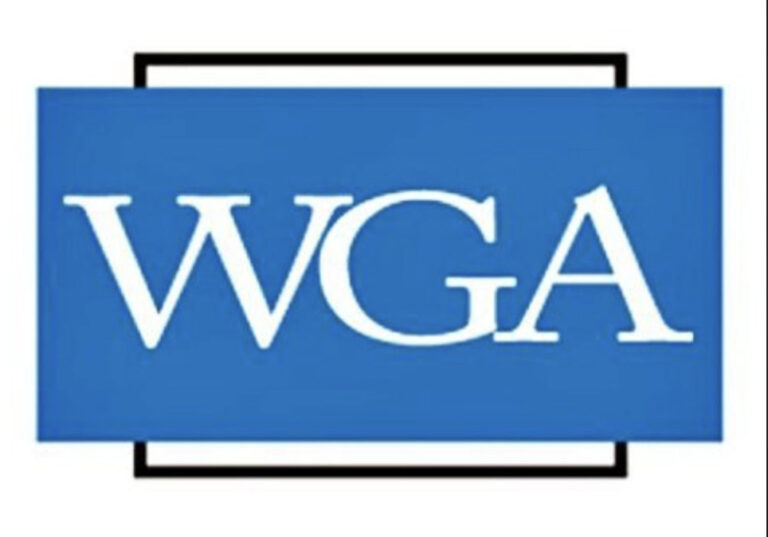
Carrying picket signs depicting their pens held in clenched fists, 11,500 screenwriters of The Writers Guild of America have overwhelmingly gone on strike against the Alliance of Motion Picture and Television Producers, the first such walkout since 2007.
The strike is expected to be felt first in the realm of late-night television, including shows like “The Late Show With Stephen Colbert,” “Jimmy Kimmel Live!,” “The Tonight Show Starring Jimmy Fallon,” “Late Night With Seth Meyers,” “Real Time With Bill Maher” And “Saturday Night Live.” All of these shows, whether on network or cable, rely on Guild writers for much of their content.
For the duration of the strike, Colbert, Fallon, Kimmel, and Meyers will be pausing production on new shows, relying on reruns for the time being. Shows by Maher will temporarily go off the air without reruns to replace them.
Many of the show’s principals have expressed support for the writers. On his Monday night show, Seth Meyers told his viewers: “Look, no one is entitled to a job in show business. But for those people who have a job in show business, they are entitled to fair compensation. They are entitled to make a living. I think it’s a very reasonable demand that is being set out by the guild, and I support those demands. But I also believe that everybody at the table right now, be it from the writer side or the studio side, knows that the future of this business is dependent on storytellers.”
Conan O’Brien illustrated the dearth of new material on his Monday night show by time fillers like spinning his wedding ring on his desk and zip-lining over his studio audience. NBC has decided to rerun “Saturday Night Live” program during the strike, they originally had three new episodes scheduled to run during May, including one hosted by former cast member Pete Davidson.
If the strike continues for a longer run, it will have an impact on other productions, such as soap operas, television series, and movies.
As part of its game plan to publicize their demands, the writers will be walking picket lines at major venues on both coasts, including NBCUniversal’s 30 Rockefeller Plaza, Radio City Music Hall, and the offices of Warner Bros.
Discovery and Netflix in New York; as well as Amazon’s and Sony Pictures’ offices in Culver City.
As one anonymous writer-producer told the Los Angeles Times: “Shows that are still in production will not have writers on set, shows that are still in post will not have showrunners in the editing room or on the soundstage. Make no mistake, the editing room and the soundstage are the final rewrites of any episode of television.
A writers’ strike will have a very large impact on the quality of the material produced. And shows that are in the middle of their seasons will not have scripts to shoot, which will necessitate a shutdown.”
During the strike, the Writers Guild will prohibit members from revising existing work, starting a new project or delivering work to a struck company, regardless of whether they work from home or an office. Writers are not even allowed to discuss work with studios.
Discussing the rationale for the walkout, the Writers Guild pointed to the adverse effects the move to streaming services has had on its members, who have long enjoyed income from residuals, a source that has been dropping significantly in recent years. “The companies have used the transition to streaming to cut writer pay and separate writing from production, worsening working conditions for series writers at all levels,” says the Guild. “On TV staffs, more writers are working at minimum regardless of experience, often for fewer weeks, or in mini-rooms, while showrunners are left without a writing staff to complete the season. And while series budgets have soared over the past decade, median writer-producer pay has fallen.”
The last WGA strike, in 2007, went on for 100 days. It is not known when the two sides in the current dispute might resume negotiations.
Check out more of Edward’s articles.

